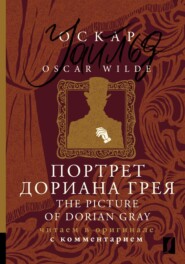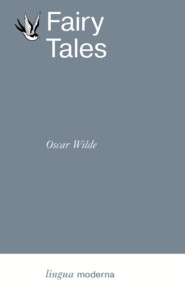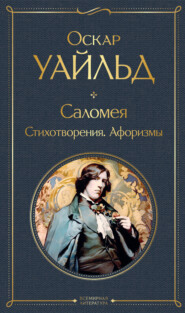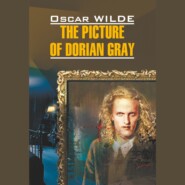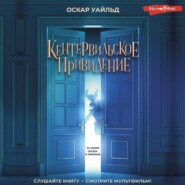По всем вопросам обращайтесь на: info@litportal.ru
(©) 2003-2024.
✖
Reviews
Настройки чтения
Размер шрифта
Высота строк
Поля
(For the tale will never die)
How the old pump flowed both night and day
When the brooks and the wells ran dry,
has all the ring of Macaulay in it, and is a form of poetry which cannot possibly harm anybody, even if translated into French. Any inaccurate ideas of the laws of nature which the children might get from the passage in question could easily be corrected afterwards by a lecture on Hydrostatics. The poem, however, which gives us most pleasure is the one called The Dear Old Knocker on the Door. It is appropriately illustrated by Mr. Tristram Ellis. We quote the concluding verses of the first and last stanzas:
Blithe voices then so dear
Send up their shouts once more,
Then sounds again on mem’ry’s ear
The dear old knocker on the door.
When mem’ry turns the key
Where time has placed my score,
Encased ’mid treasured thoughts must be
The dear old knocker on the door.
The cynic may mock at the subject of these verses, but we do not. Why not an ode on a knocker? Does not Victor Hugo’s tragedy of Lucrece Borgia turn on the defacement of a doorplate? Mr. Furlong must not be discouraged. Perhaps he will write poetry some day. If he does we would earnestly appeal to him to give up calling a cock ‘proud chanticleer.’ Few synonyms are so depressing.
Having been lured by the Circe of a white vellum binding into the region of the pump and doormat, we turn to a modest little volume by Mr. Bowling of St. John’s College, Cambridge, entitled Sagittulæ. And they are indeed delicate little arrows, for they are winged with the lightness of the lyric and barbed daintily with satire. Æsthesis and Athletes is a sweet idyll, and nothing can be more pathetic than the Tragedy of the XIX. Century, which tells of a luckless examiner condemned in his public capacity to pluck for her Little-go the girl graduate whom he privately adores. Girton seems to be having an important influence on the Cambridge school of poetry. We are not surprised. The Graces are the Graces always, even when they wear spectacles.
Then comes Tuberose and Meadowsweet, by Mr. Mark André Raffalovich. This is really a remarkable little volume, and contains many strange and beautiful poems. To say of these poems that they are unhealthy and bring with them the heavy odours of the hothouse is to point out neither their defect nor their merit, but their quality merely. And though Mr. Raffalovich is not a wonderful poet, still he is a subtle artist in poetry. Indeed, in his way he is a boyish master of curious music and of fantastic rhyme, and can strike on the lute of language so many lovely chords that it seems a pity he does not know how to pronounce the title of his book and the theme of his songs. For he insists on making ‘tuberose’ a trisyllable always, as if it were a potato blossom and not a flower shaped like a tiny trumpet of ivory. However, for the sake of his meadowsweet and his spring-green binding this must be forgiven him. And though he cannot pronounce ‘tuberose’ aright, at least he can sing of it exquisitely.
Finally we come to Sturm und Drang, the work of an anonymous writer. Opening the volume at hazard we come across these graceful lines:
How sweet to spend in this blue bay
The close of life’s disastrous day,
To watch the morn break faintly free
Across the greyness of the sea,
What time Memnonian music fills
The shadows of the dewy hills.
Well, here is the touch of a poet, and we pluck up heart and read on. The book is a curious but not inartistic combination of the mental attitude of Mr. Matthew Arnold with the style of Lord Tennyson. Sometimes, as in The Sicilian Hermit, we get merely the metre of Locksley Hall without its music, merely its fine madness and not its fine magic. Still, elsewhere there is good work, and Caliban in East London has a great deal of power in it, though we do not like the adjective ‘knockery’ even in a poem on Whitechapel.
On the whole, to those who watch the culture of the age, the most interesting thing in young poets is not so much what they invent as what masters they follow. A few years ago it was all Mr. Swinburne. That era has happily passed away. The mimicry of passion is the most intolerable of all poses. Now, it is all Lord Tennyson, and that is better. For a young writer can gain more from the study of a literary poet than from the study of a lyrist. He may become the pupil of the one, but he can never be anything but the slave of the other. And so we are glad to see in this volume direct and noble praise of him
* * * * *
Who plucked in English meadows flowers fair
As any that in unforgotten stave
Vied with the orient gold of Venus’ hair
Or fringed the murmur of the Ægean wave,
which are the fine words in which this anonymous poet pays his tribute to the Laureate.
(1) Echoes of Memory. By Atherton Furlong. (Field and Tuer.)
(2) Sagittulæ. By E. W. Bowling. (Longmans, Green and Co.)
(3) Tuberose and Meadowsweet. By Mark André Raffalovich. (David Bogue.)
(4) Sturm und Drang. (Elliot Stock.)
In reply to the review A Bevy of Poets the following letter was published in the Pall Mall Gazette on March 30, 1885, under the title of
THE ROOT OF THE MATTER
SIR, – I am sorry not to be able to accept the graceful etymology of your reviewer who calls me to task for not knowing how to pronounce the title of my book Tuberose and Meadowsweet. I insist, he fancifully says, ‘on making “tuberose” a trisyllable always, as if it were a potato blossom and not a flower shaped like a tiny trumpet of ivory.’ Alas! tuberose is a trisyllable if properly derived from the Latin tuberosus, the lumpy flower, having nothing to do with roses or with trumpets of ivory in name any more than in nature. I am reminded by a great living poet that another correctly wrote:
Or as the moonlight fills the open sky
Struggling with darkness – as a tuberose
Peoples some Indian dell with scents which lie
Like clouds above the flower from which they rose.
In justice to Shelley, whose lines I quote, your readers will admit that I have good authority for making a trisyllable of tuberose. – I am, Sir, your obedient servant,
ANDRÉ RAFFALOVICH.
March 28.
PARNASSUS VERSUS PHILOLOGY
(Pall Mall Gazette, April 1, 1885.)
To the Editor of the Pall Mall Gazette.
SIR, – I am deeply distressed to hear that tuberose is so called from its being a ‘lumpy flower.’ It is not at all lumpy, and, even if it were, no poet should be heartless enough to say so. Henceforth, there really must be two derivations for every word, one for the poet and one for the scientist. And in the present case the poet will dwell on the tiny trumpets of ivory into which the white flower breaks, and leave to the man of science horrid allusions to its supposed lumpiness and indiscreet revelations of its private life below ground. In fact, ‘tuber’ as a derivation is disgraceful. On the roots of verbs Philology may be allowed to speak, but on the roots of flowers she must keep silence. We cannot allow her to dig up Parnassus. And, as regards the word being a trisyllable, I am reminded by a great living poet that another correctly wrote:
And the jessamine faint, and the sweet tuberose,
The sweetest flower for scent that blows;
And all rare blossoms from every clime
Grew in that garden in perfect prime.
In justice to Shelley, whose lines I quote, your readers will admit that I have good authority for making a dissyllable of tuberose. – I am, Sir, your obedient servant,
THE CRITIC,
WHO HAD TO READ FOUR VOLUMES OF MODERN POETRY.
March 30.
HAMLET AT THE LYCEUM
(Dramatic Review, May 9, 1885.)
It sometimes happens that at a première in London the least enjoyable part of the performance is the play. I have seen many audiences more interesting than the actors, and have often heard better dialogue in the foyer than I have on the stage. At the Lyceum, however, this is rarely the case, and when the play is a play of Shakespeare’s, and among its exponents are Mr. Irving and Miss Ellen Terry, we turn from the gods in the gallery and from the goddesses in the stalls, to enjoy the charm of the production, and to take delight in the art. The lions are behind the footlights and not in front of them when we have a noble tragedy nobly acted. And I have rarely witnessed such enthusiasm as that which greeted on last Saturday night the two artists I have mentioned. I would like, in fact, to use the word ovation, but a pedantic professor has recently informed us, with the Batavian buoyancy of misapplied learning, that this expression is not to be employed except when a sheep has been sacrificed. At the Lyceum last week I need hardly say nothing so dreadful occurred. The only inartistic incident of the evening was the hurling of a bouquet from a box at Mr. Irving while he was engaged in pourtraying the agony of Hamlet’s death, and the pathos of his parting with Horatio. The Dramatic College might take up the education of spectators as well as that of players, and teach people that there is a proper moment for the throwing of flowers as well as a proper method.
As regards Mr. Irving’s own performance, it has been already so elaborately criticised and described, from his business with the supposed pictures in the closet scene down to his use of ‘peacock’ for ‘paddock,’ that little remains to be said; nor, indeed, does a Lyceum audience require the interposition of the dramatic critic in order to understand or to appreciate the Hamlet of this great actor. I call him a great actor because he brings to the interpretation of a work of art the two qualities which we in this century so much desire, the qualities of personality and of perfection. A few years ago it seemed to many, and perhaps rightly, that the personality overshadowed the art. No such criticism would be fair now. The somewhat harsh angularity of movement and faulty pronunciation have been replaced by exquisite grace of gesture and clear precision of word, where such precision is necessary. For delightful as good elocution is, few things are so depressing as to hear a passionate passage recited instead of being acted. The quality of a fine performance is its life more than its learning, and every word in a play has a musical as well as an intellectual value, and must be made expressive of a certain emotion. So it does not seem to me that in all parts of a play perfect pronunciation is necessarily dramatic. When the words are ‘wild and whirling,’ the expression of them must be wild and whirling also. Mr. Irving, I think, manages his voice with singular art; it was impossible to discern a false note or wrong intonation in his dialogue or his soliloquies, and his strong dramatic power, his realistic power as an actor, is as effective as ever. A great critic at the beginning of this century said that Hamlet is the most difficult part to personate on the stage, that it is like the attempt to ‘embody a shadow.’ I cannot say that I agree with this idea. Hamlet seems to me essentially a good acting part, and in Mr. Irving’s performance of it there is that combination of poetic grace with absolute reality which is so eternally delightful. Indeed, if the words easy and difficult have any meaning at all in matters of art, I would be inclined to say that Ophelia is the more difficult part. She has, I mean, less material by which to produce her effects. She is the occasion of the tragedy, but she is neither its heroine nor its chief victim. She is swept away by circumstances, and gives the opportunity for situation, of which she is not herself the climax, and which she does not herself command. And of all the parts which Miss Terry has acted in her brilliant career, there is none in which her infinite powers of pathos and her imaginative and creative faculty are more shown than in her Ophelia. Miss Terry is one of those rare artists who needs for her dramatic effect no elaborate dialogue, and for whom the simplest words are sufficient. ‘I love you not,’ says Hamlet, and all that Ophelia answers is, ‘I was the more deceived.’ These are not very grand words to read, but as Miss Terry gave them in acting they seemed to be the highest possible expression of Ophelia’s character. Beautiful, too, was the quick remorse she conveyed by her face and gesture the moment she had lied to Hamlet and told him her father was at home. This I thought a masterpiece of good acting, and her mad scene was wonderful beyond all description. The secrets of Melpomene are known to Miss Terry as well as the secrets of Thalia. As regards the rest of the company there is always a high standard at the Lyceum, but some particular mention should be made of Mr. Alexander’s brilliant performance of Laertes. Mr. Alexander has a most effective presence, a charming voice, and a capacity for wearing lovely costumes with ease and elegance. Indeed, in the latter respect his only rival was Mr. Norman Forbes, who played either Guildenstern or Rosencrantz very gracefully. I believe one of our budding Hazlitts is preparing a volume to be entitled ‘Great Guildensterns and Remarkable Rosencrantzes,’ but I have never been able myself to discern any difference between these two characters. They are, I think, the only characters Shakespeare has not cared to individualise. Whichever of the two, however, Mr. Forbes acted, he acted it well. Only one point in Mr. Alexander’s performance seemed to me open to question, that was his kneeling during the whole of Polonius’s speech. For this I see no necessity at all, and it makes the scene look less natural than it should – gives it, I mean, too formal an air. However, the performance was most spirited and gave great pleasure to every one. Mr. Alexander is an artist from whom much will be expected, and I have no doubt he will give us much that is fine and noble. He seems to have all the qualifications for a good actor.
There is just one other character I should like to notice. The First Player seemed to me to act far too well. He should act very badly. The First Player, besides his position in the dramatic evolution of the tragedy, is Shakespeare’s caricature of the ranting actor of his day, just as the passage he recites is Shakespeare’s own parody on the dull plays of some of his rivals. The whole point of Hamlet’s advice to the players seems to me to be lost unless the Player himself has been guilty of the fault which Hamlet reprehends, unless he has sawn the air with his hand, mouthed his lines, torn his passion to tatters, and out-Heroded Herod. The very sensibility which Hamlet notices in the actor, such as his real tears and the like, is not the quality of a good artist. The part should be played after the manner of a provincial tragedian. It is meant to be a satire, and to play it well is to play it badly. The scenery and costumes were excellent with the exception of the King’s dress, which was coarse in colour and tawdry in effect. And the Player Queen should have come in boy’s attire to Elsinore.
How the old pump flowed both night and day
When the brooks and the wells ran dry,
has all the ring of Macaulay in it, and is a form of poetry which cannot possibly harm anybody, even if translated into French. Any inaccurate ideas of the laws of nature which the children might get from the passage in question could easily be corrected afterwards by a lecture on Hydrostatics. The poem, however, which gives us most pleasure is the one called The Dear Old Knocker on the Door. It is appropriately illustrated by Mr. Tristram Ellis. We quote the concluding verses of the first and last stanzas:
Blithe voices then so dear
Send up their shouts once more,
Then sounds again on mem’ry’s ear
The dear old knocker on the door.
When mem’ry turns the key
Where time has placed my score,
Encased ’mid treasured thoughts must be
The dear old knocker on the door.
The cynic may mock at the subject of these verses, but we do not. Why not an ode on a knocker? Does not Victor Hugo’s tragedy of Lucrece Borgia turn on the defacement of a doorplate? Mr. Furlong must not be discouraged. Perhaps he will write poetry some day. If he does we would earnestly appeal to him to give up calling a cock ‘proud chanticleer.’ Few synonyms are so depressing.
Having been lured by the Circe of a white vellum binding into the region of the pump and doormat, we turn to a modest little volume by Mr. Bowling of St. John’s College, Cambridge, entitled Sagittulæ. And they are indeed delicate little arrows, for they are winged with the lightness of the lyric and barbed daintily with satire. Æsthesis and Athletes is a sweet idyll, and nothing can be more pathetic than the Tragedy of the XIX. Century, which tells of a luckless examiner condemned in his public capacity to pluck for her Little-go the girl graduate whom he privately adores. Girton seems to be having an important influence on the Cambridge school of poetry. We are not surprised. The Graces are the Graces always, even when they wear spectacles.
Then comes Tuberose and Meadowsweet, by Mr. Mark André Raffalovich. This is really a remarkable little volume, and contains many strange and beautiful poems. To say of these poems that they are unhealthy and bring with them the heavy odours of the hothouse is to point out neither their defect nor their merit, but their quality merely. And though Mr. Raffalovich is not a wonderful poet, still he is a subtle artist in poetry. Indeed, in his way he is a boyish master of curious music and of fantastic rhyme, and can strike on the lute of language so many lovely chords that it seems a pity he does not know how to pronounce the title of his book and the theme of his songs. For he insists on making ‘tuberose’ a trisyllable always, as if it were a potato blossom and not a flower shaped like a tiny trumpet of ivory. However, for the sake of his meadowsweet and his spring-green binding this must be forgiven him. And though he cannot pronounce ‘tuberose’ aright, at least he can sing of it exquisitely.
Finally we come to Sturm und Drang, the work of an anonymous writer. Opening the volume at hazard we come across these graceful lines:
How sweet to spend in this blue bay
The close of life’s disastrous day,
To watch the morn break faintly free
Across the greyness of the sea,
What time Memnonian music fills
The shadows of the dewy hills.
Well, here is the touch of a poet, and we pluck up heart and read on. The book is a curious but not inartistic combination of the mental attitude of Mr. Matthew Arnold with the style of Lord Tennyson. Sometimes, as in The Sicilian Hermit, we get merely the metre of Locksley Hall without its music, merely its fine madness and not its fine magic. Still, elsewhere there is good work, and Caliban in East London has a great deal of power in it, though we do not like the adjective ‘knockery’ even in a poem on Whitechapel.
On the whole, to those who watch the culture of the age, the most interesting thing in young poets is not so much what they invent as what masters they follow. A few years ago it was all Mr. Swinburne. That era has happily passed away. The mimicry of passion is the most intolerable of all poses. Now, it is all Lord Tennyson, and that is better. For a young writer can gain more from the study of a literary poet than from the study of a lyrist. He may become the pupil of the one, but he can never be anything but the slave of the other. And so we are glad to see in this volume direct and noble praise of him
* * * * *
Who plucked in English meadows flowers fair
As any that in unforgotten stave
Vied with the orient gold of Venus’ hair
Or fringed the murmur of the Ægean wave,
which are the fine words in which this anonymous poet pays his tribute to the Laureate.
(1) Echoes of Memory. By Atherton Furlong. (Field and Tuer.)
(2) Sagittulæ. By E. W. Bowling. (Longmans, Green and Co.)
(3) Tuberose and Meadowsweet. By Mark André Raffalovich. (David Bogue.)
(4) Sturm und Drang. (Elliot Stock.)
In reply to the review A Bevy of Poets the following letter was published in the Pall Mall Gazette on March 30, 1885, under the title of
THE ROOT OF THE MATTER
SIR, – I am sorry not to be able to accept the graceful etymology of your reviewer who calls me to task for not knowing how to pronounce the title of my book Tuberose and Meadowsweet. I insist, he fancifully says, ‘on making “tuberose” a trisyllable always, as if it were a potato blossom and not a flower shaped like a tiny trumpet of ivory.’ Alas! tuberose is a trisyllable if properly derived from the Latin tuberosus, the lumpy flower, having nothing to do with roses or with trumpets of ivory in name any more than in nature. I am reminded by a great living poet that another correctly wrote:
Or as the moonlight fills the open sky
Struggling with darkness – as a tuberose
Peoples some Indian dell with scents which lie
Like clouds above the flower from which they rose.
In justice to Shelley, whose lines I quote, your readers will admit that I have good authority for making a trisyllable of tuberose. – I am, Sir, your obedient servant,
ANDRÉ RAFFALOVICH.
March 28.
PARNASSUS VERSUS PHILOLOGY
(Pall Mall Gazette, April 1, 1885.)
To the Editor of the Pall Mall Gazette.
SIR, – I am deeply distressed to hear that tuberose is so called from its being a ‘lumpy flower.’ It is not at all lumpy, and, even if it were, no poet should be heartless enough to say so. Henceforth, there really must be two derivations for every word, one for the poet and one for the scientist. And in the present case the poet will dwell on the tiny trumpets of ivory into which the white flower breaks, and leave to the man of science horrid allusions to its supposed lumpiness and indiscreet revelations of its private life below ground. In fact, ‘tuber’ as a derivation is disgraceful. On the roots of verbs Philology may be allowed to speak, but on the roots of flowers she must keep silence. We cannot allow her to dig up Parnassus. And, as regards the word being a trisyllable, I am reminded by a great living poet that another correctly wrote:
And the jessamine faint, and the sweet tuberose,
The sweetest flower for scent that blows;
And all rare blossoms from every clime
Grew in that garden in perfect prime.
In justice to Shelley, whose lines I quote, your readers will admit that I have good authority for making a dissyllable of tuberose. – I am, Sir, your obedient servant,
THE CRITIC,
WHO HAD TO READ FOUR VOLUMES OF MODERN POETRY.
March 30.
HAMLET AT THE LYCEUM
(Dramatic Review, May 9, 1885.)
It sometimes happens that at a première in London the least enjoyable part of the performance is the play. I have seen many audiences more interesting than the actors, and have often heard better dialogue in the foyer than I have on the stage. At the Lyceum, however, this is rarely the case, and when the play is a play of Shakespeare’s, and among its exponents are Mr. Irving and Miss Ellen Terry, we turn from the gods in the gallery and from the goddesses in the stalls, to enjoy the charm of the production, and to take delight in the art. The lions are behind the footlights and not in front of them when we have a noble tragedy nobly acted. And I have rarely witnessed such enthusiasm as that which greeted on last Saturday night the two artists I have mentioned. I would like, in fact, to use the word ovation, but a pedantic professor has recently informed us, with the Batavian buoyancy of misapplied learning, that this expression is not to be employed except when a sheep has been sacrificed. At the Lyceum last week I need hardly say nothing so dreadful occurred. The only inartistic incident of the evening was the hurling of a bouquet from a box at Mr. Irving while he was engaged in pourtraying the agony of Hamlet’s death, and the pathos of his parting with Horatio. The Dramatic College might take up the education of spectators as well as that of players, and teach people that there is a proper moment for the throwing of flowers as well as a proper method.
As regards Mr. Irving’s own performance, it has been already so elaborately criticised and described, from his business with the supposed pictures in the closet scene down to his use of ‘peacock’ for ‘paddock,’ that little remains to be said; nor, indeed, does a Lyceum audience require the interposition of the dramatic critic in order to understand or to appreciate the Hamlet of this great actor. I call him a great actor because he brings to the interpretation of a work of art the two qualities which we in this century so much desire, the qualities of personality and of perfection. A few years ago it seemed to many, and perhaps rightly, that the personality overshadowed the art. No such criticism would be fair now. The somewhat harsh angularity of movement and faulty pronunciation have been replaced by exquisite grace of gesture and clear precision of word, where such precision is necessary. For delightful as good elocution is, few things are so depressing as to hear a passionate passage recited instead of being acted. The quality of a fine performance is its life more than its learning, and every word in a play has a musical as well as an intellectual value, and must be made expressive of a certain emotion. So it does not seem to me that in all parts of a play perfect pronunciation is necessarily dramatic. When the words are ‘wild and whirling,’ the expression of them must be wild and whirling also. Mr. Irving, I think, manages his voice with singular art; it was impossible to discern a false note or wrong intonation in his dialogue or his soliloquies, and his strong dramatic power, his realistic power as an actor, is as effective as ever. A great critic at the beginning of this century said that Hamlet is the most difficult part to personate on the stage, that it is like the attempt to ‘embody a shadow.’ I cannot say that I agree with this idea. Hamlet seems to me essentially a good acting part, and in Mr. Irving’s performance of it there is that combination of poetic grace with absolute reality which is so eternally delightful. Indeed, if the words easy and difficult have any meaning at all in matters of art, I would be inclined to say that Ophelia is the more difficult part. She has, I mean, less material by which to produce her effects. She is the occasion of the tragedy, but she is neither its heroine nor its chief victim. She is swept away by circumstances, and gives the opportunity for situation, of which she is not herself the climax, and which she does not herself command. And of all the parts which Miss Terry has acted in her brilliant career, there is none in which her infinite powers of pathos and her imaginative and creative faculty are more shown than in her Ophelia. Miss Terry is one of those rare artists who needs for her dramatic effect no elaborate dialogue, and for whom the simplest words are sufficient. ‘I love you not,’ says Hamlet, and all that Ophelia answers is, ‘I was the more deceived.’ These are not very grand words to read, but as Miss Terry gave them in acting they seemed to be the highest possible expression of Ophelia’s character. Beautiful, too, was the quick remorse she conveyed by her face and gesture the moment she had lied to Hamlet and told him her father was at home. This I thought a masterpiece of good acting, and her mad scene was wonderful beyond all description. The secrets of Melpomene are known to Miss Terry as well as the secrets of Thalia. As regards the rest of the company there is always a high standard at the Lyceum, but some particular mention should be made of Mr. Alexander’s brilliant performance of Laertes. Mr. Alexander has a most effective presence, a charming voice, and a capacity for wearing lovely costumes with ease and elegance. Indeed, in the latter respect his only rival was Mr. Norman Forbes, who played either Guildenstern or Rosencrantz very gracefully. I believe one of our budding Hazlitts is preparing a volume to be entitled ‘Great Guildensterns and Remarkable Rosencrantzes,’ but I have never been able myself to discern any difference between these two characters. They are, I think, the only characters Shakespeare has not cared to individualise. Whichever of the two, however, Mr. Forbes acted, he acted it well. Only one point in Mr. Alexander’s performance seemed to me open to question, that was his kneeling during the whole of Polonius’s speech. For this I see no necessity at all, and it makes the scene look less natural than it should – gives it, I mean, too formal an air. However, the performance was most spirited and gave great pleasure to every one. Mr. Alexander is an artist from whom much will be expected, and I have no doubt he will give us much that is fine and noble. He seems to have all the qualifications for a good actor.
There is just one other character I should like to notice. The First Player seemed to me to act far too well. He should act very badly. The First Player, besides his position in the dramatic evolution of the tragedy, is Shakespeare’s caricature of the ranting actor of his day, just as the passage he recites is Shakespeare’s own parody on the dull plays of some of his rivals. The whole point of Hamlet’s advice to the players seems to me to be lost unless the Player himself has been guilty of the fault which Hamlet reprehends, unless he has sawn the air with his hand, mouthed his lines, torn his passion to tatters, and out-Heroded Herod. The very sensibility which Hamlet notices in the actor, such as his real tears and the like, is not the quality of a good artist. The part should be played after the manner of a provincial tragedian. It is meant to be a satire, and to play it well is to play it badly. The scenery and costumes were excellent with the exception of the King’s dress, which was coarse in colour and tawdry in effect. And the Player Queen should have come in boy’s attire to Elsinore.







